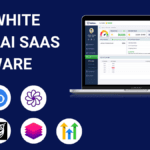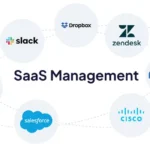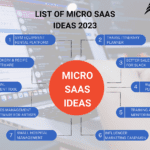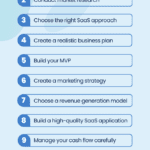IPaaS (Integration Platform as a Service) connects different applications and data sources. SaaS (Software as a Service) delivers software over the internet.
IPaaS and SaaS are pivotal in the modern digital landscape. IPaaS solutions enable seamless integration across various platforms, simplifying data management. SaaS applications, hosted on the cloud, provide easy access to software without the need for installation. Businesses leverage iPaaS to ensure their diverse systems communicate effectively.
SaaS offers scalable, cost-effective software solutions accessible from anywhere. Both technologies drive efficiency, but they serve distinct purposes. IPaaS focuses on integration, while SaaS delivers functional software. Understanding their differences helps businesses choose the right tools for their specific needs.
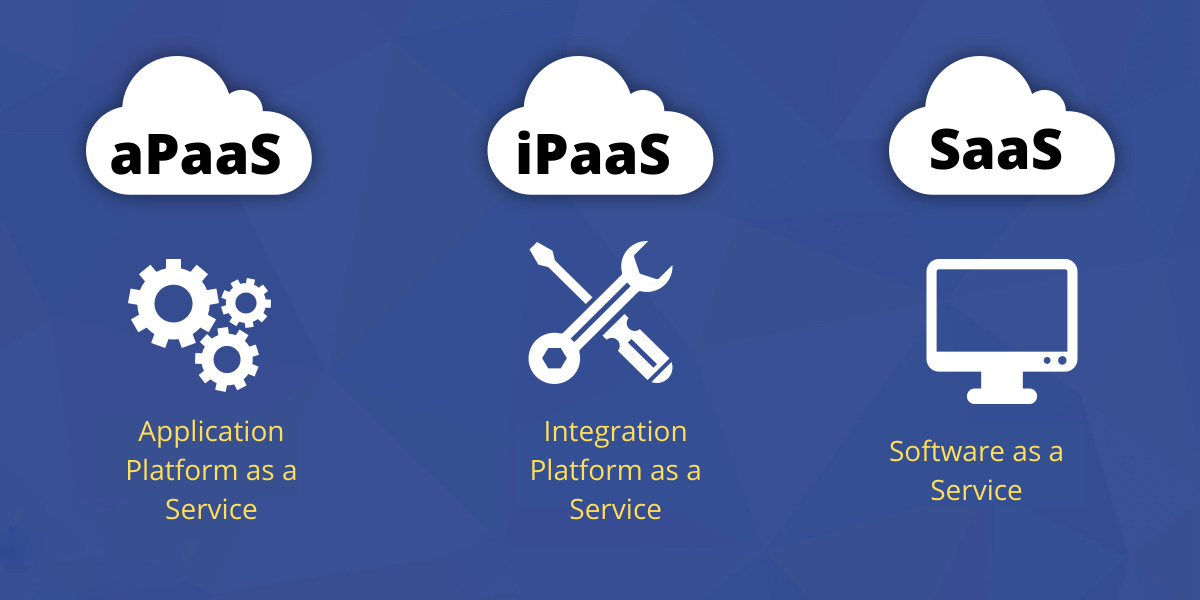
Credit: www.seasiainfotech.com
Introduction To Ipaas And Saas
IPaaS (Integration Platform as a Service) connects various software applications, streamlining data flow across systems. SaaS (Software as a Service) delivers software solutions via the cloud, accessible on-demand. Comparing iPaaS and SaaS reveals distinct functionalities, with iPaaS focusing on integration and SaaS providing ready-to-use software.
The Rise Of Cloud Computing
Cloud computing is very popular today. It helps businesses save money. It also makes work easier. Two popular cloud services are iPaaS and SaaS. Both are very useful. They help companies work better and faster.
Essential Cloud Service Models
| Service Model | Description |
|---|---|
| iPaaS | Integrates different apps and services. Connects data easily. |
| SaaS | Provides software over the internet. Users can access it anytime. |
iPaaS stands for Integration Platform as a Service. It connects different apps. SaaS stands for Software as a Service. It delivers software online. Both have unique benefits. Choosing the right one depends on business needs.
Defining Ipaas
iPaaS stands for Integration Platform as a Service. It helps connect different apps and data sources. It offers scalability and flexibility. Companies can use it to automate workflows. It supports real-time data integration. iPaaS often includes pre-built connectors. These connectors make integration easy. It also has robust security features. This ensures data is always safe. Monitoring and analytics are part of iPaaS. They help track performance. This makes it easier to spot issues.
Businesses use iPaaS for various tasks. Data synchronization is a common use. It keeps data consistent across apps. Automating workflows is another use. This saves time and reduces errors. iPaaS is great for cloud migration. It helps move data to the cloud smoothly. Companies also use it for API management. This makes it easy to manage different APIs. E-commerce platforms benefit from iPaaS. They use it for order processing and inventory management.
Defining Saas
SaaS stands for Software as a Service. It provides software over the internet. Users access it through a web browser. No need to install software on local devices. SaaS offers automatic updates. It usually has a subscription model. This means paying monthly or yearly. SaaS is scalable. It can grow with your business needs. Many SaaS products offer customization options. This helps in personalizing the software. SaaS ensures data security. Providers handle backups and security measures.
- Google Workspace: Offers email, documents, and storage.
- Salesforce: A CRM tool for managing customer relations.
- Slack: A messaging app for team communication.
- Dropbox: Provides cloud storage solutions.
- Zoom: Used for video conferencing and online meetings.
Comparing Ipaas And Saas
iPaaS is great for connecting different systems. It helps businesses to integrate various applications easily. SaaS offers specific software solutions. It may need more tools for integration. iPaaS can handle complex workflows. It supports multiple data formats and protocols. SaaS focuses more on individual software functions. It might not be as flexible as iPaaS.
SaaS platforms often have user-friendly interfaces. These platforms are usually easy to navigate. iPaaS might be more complex due to its integration functions. SaaS tools are often accessible via web browsers. This makes them easy to use on any device. iPaaS may require more specialized knowledge. It focuses on connecting various systems efficiently.
The Role Of Ipaas In Cloud Integration
iPaaS helps businesses connect different systems. It makes sure data flows smoothly. Complex integrations become simple with iPaaS. It saves time and reduces errors. Companies can focus on their core work. iPaaS is a great tool for IT teams. They can manage integrations easily.
iPaaS improves data connectivity. Data from different sources can be linked. This helps in better decision-making. Businesses can get insights quickly. iPaaS supports real-time data sharing. It ensures all systems are updated. Companies can stay competitive with better data access.
How Saas Simplifies Software Deployment
SaaS solutions help businesses launch products faster. No need to worry about server setups. Everything runs in the cloud. This means less time spent on hardware issues. Companies can focus on developing their product. SaaS platforms provide quick updates. Customers always have the latest features. This makes it easier to stay ahead of competitors.
SaaS reduces the need for large IT teams. Maintenance and upgrades are managed by the provider. This frees up internal resources. Teams can concentrate on core activities. There's no need to invest in expensive infrastructure. SaaS offers flexible pricing models. You only pay for what you use. This makes budgeting easier and more predictable.
Choosing Between Ipaas And Saas
Understanding your business needs is crucial. iPaaS helps in integrating multiple applications. SaaS provides ready-to-use software. Businesses with complex integration needs may prefer iPaaS. Companies needing simple solutions often choose SaaS. Evaluate the technical expertise of your team. iPaaS may require more technical skills. SaaS is usually easier to implement. Think about your long-term goals. iPaaS offers more flexibility. SaaS provides faster deployment.
Consider the initial costs of both solutions. iPaaS might have higher setup costs. SaaS usually involves a subscription fee. Look at the maintenance and support expenses. iPaaS may need ongoing technical support. SaaS often includes support in the subscription. Evaluate the return on investment. iPaaS can offer more customization. SaaS provides quicker results. Think about your budget constraints. Choose the option that aligns with your financial plan.
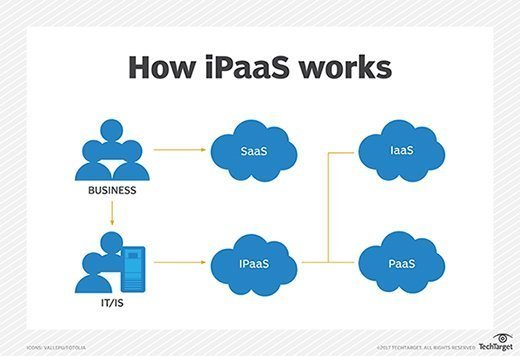
Credit: www.techtarget.com
Hybrid Approaches To Cloud Solutions
Combining iPaaS and SaaS offers unique benefits. iPaaS helps integrate different systems. SaaS provides ready-to-use applications. Together, they create a powerful solution. Businesses can automate many tasks. This saves both time and money. Better integration means smoother operations. Companies can scale easily with these tools. They can also adapt quickly to changes.
Case Studies
Many companies have seen success. One company used iPaaS and SaaS for sales. They improved their workflow by 50%. Another company used these tools for customer support. Their response time improved by 30%. A third company used them for marketing. They saw a 20% increase in leads. These examples show the power of combining iPaaS and SaaS.
Future Trends In Ipaas And Saas
Cloud technology is growing fast. It helps businesses work better. iPaaS stands for Integration Platform as a Service. SaaS stands for Software as a Service. Both use the cloud to work. iPaaS connects different apps and data. SaaS gives software to users over the internet. New advancements make these services even better. Security is getting stronger. Speed is improving too. More features are being added all the time. Businesses need these to stay ahead.
The cloud market will grow more. iPaaS and SaaS will be very important. Many businesses will use them. More companies will move to the cloud. Costs will go down. Efficiency will go up. New tools will come out. These tools will help businesses do more. Artificial Intelligence will play a big role. It will make services smarter. Data management will also improve. The future of cloud looks bright.
Conclusion: Selecting The Right Cloud Solution
Selecting the right cloud solution between iPaaS and SaaS hinges on your specific business needs. IPaaS excels in integrating various applications, while SaaS offers ready-to-use software solutions. Evaluate your integration requirements and software needs to make an informed decision.
Summarizing Key Differences
iPaaS stands for Integration Platform as a Service. It helps in connecting different software applications. SaaS stands for Software as a Service. It delivers software over the internet. iPaaS is about integration. SaaS is about providing software. iPaaS connects different tools. SaaS is a tool you use. iPaaS can work with multiple SaaS tools. SaaS is a single application.
Final Recommendations
Choose iPaaS if you need to connect many apps. It helps in making them work together. Go for SaaS if you need a specific tool. It is easy to use and manage. For complex needs, iPaaS is better. For simple tasks, SaaS is enough. Understand your needs first. Then decide which solution fits best.

Credit: www.bmc.com
Frequently Asked Questions
What Is The Difference Between Ipaas And Saas?
IPaaS integrates different software applications, enabling seamless data flow. SaaS provides software access via the internet, without installation.
What Is Ipaas Software?
IPaaS software integrates applications and data across various platforms. It streamlines workflows, enhances efficiency, and ensures seamless connectivity. Ideal for businesses needing real-time data synchronization, iPaaS simplifies complex integrations and supports scalability.
What Is The Difference Between Xaas And Saas?
XaaS (Anything as a Service) includes various service models like SaaS, PaaS, and IaaS. SaaS (Software as a Service) specifically delivers software applications over the internet.
What Differentiates Paas From Saas?
PaaS provides a platform for developers to build, deploy, and manage applications. SaaS delivers ready-to-use software over the internet.
Conclusion
Choosing between iPaaS and SaaS depends on your business needs. IPaaS offers seamless integration, while SaaS provides specialized software solutions. Evaluate your goals and resources to make the best decision. Both options have their strengths, so consider what aligns best with your strategic objectives.
Make an informed choice to enhance your business efficiency.



